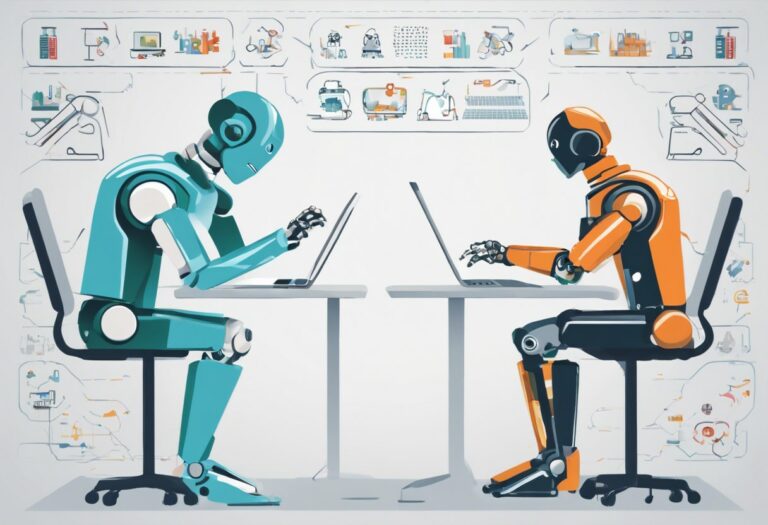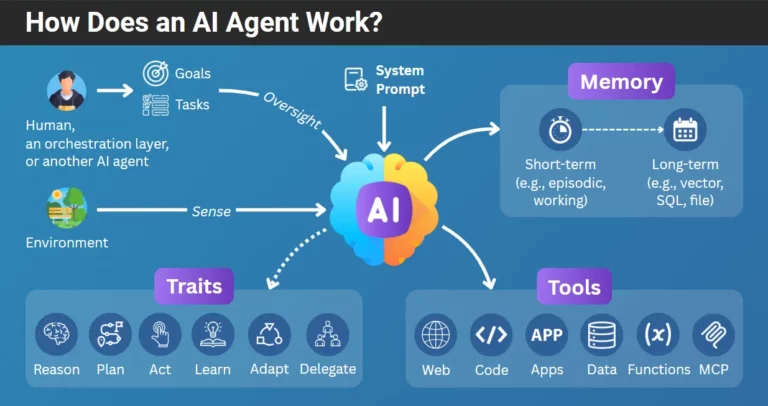
Introduction
Customer expectations in 2025 have reached an all-time high. People want immediate, relevant, and personalized responses—whether they’re shopping online at midnight or reaching out to their service provider during peak hours. To meet this demand, businesses—especially small and mid-sized ones—are turning to artificial intelligence (AI) as a game-changer in customer support.
AI no longer just augments support teams. It now anticipates needs, resolves issues in real time, and improves satisfaction through personalization and speed. In this article, we’ll explore how AI is revolutionizing customer service, what tools businesses are using, and how to implement it smartly and ethically.
1. Why AI is Essential for Modern Customer Support
Always-on service
Today’s consumers expect support to be available 24/7. AI-powered chatbots and virtual assistants make that possible—handling inquiries at any hour, across time zones, without burnout.
Speed & consistency
AI tools can instantly process thousands of support tickets, FAQs, and user queries. Unlike human agents, they never forget details and offer consistent responses that align with your brand’s tone and policies.
Cost efficiency
For many businesses, AI reduces support costs significantly. It frees up human agents to focus on complex or sensitive issues while AI handles the routine, high-volume queries.
Improved satisfaction
Faster answers, reduced wait times, proactive outreach, and tailored recommendations all contribute to higher customer satisfaction—and loyalty.
2. Real-world AI Use Cases in Customer Service
2.1 AI Chatbots & Virtual Assistants
Modern AI chatbots are conversational, context-aware, and capable of escalating to a human when necessary. They can:
- Answer frequently asked questions
- Handle booking, tracking, and payment issues
- Collect feedback and even upsell products or services
Platforms like Intercom, Drift, and Zendesk AI now integrate advanced language models to simulate more human-like interactions.
2.2 AI-Powered Help Centers
Searchable knowledge bases enhanced by AI make it easier for customers to find relevant articles. These tools learn from user behavior and continuously improve search results and recommendations.
2.3 Sentiment Analysis & Smart Routing
AI analyzes tone and urgency in messages, prioritizing negative or high-stress inquiries and routing them to the most suitable human agent.
2.4 Predictive Support
AI can detect usage patterns and predict when a customer might run into trouble—sending proactive tips, reminders, or alerts before they even reach out.
2.5 Multilingual AI Support
Global customer base? No problem. AI tools can translate queries and responses in real time, enabling multilingual support without hiring dozens of agents.
3. How to Implement AI in Customer Support
3.1 Start small, scale fast
Begin with a simple FAQ chatbot. Once that’s running smoothly, integrate sentiment analysis or proactive messaging.
3.2 Choose the right tools
Select platforms that offer transparency, integrations with your CRM/helpdesk, and customizable workflows. Some top AI customer service tools in 2025 include:
- Zendesk AI
- Freshdesk with Freddy AI
- Intercom Fin AI
- ChatGPT-powered custom bots
- IBM Watson Assistant
3.3 Train the AI on your own data
Feeding the AI with past conversations, support tickets, and internal knowledge bases helps it deliver brand-consistent, relevant responses.
3.4 Maintain a human fallback
Even the smartest AI can misinterpret complex or emotional queries. A human-in-the-loop system ensures customers aren’t left frustrated.
3.5 Monitor and optimize continuously
Track KPIs like first response time, resolution time, customer satisfaction (CSAT), and handoff rates. Use A/B testing to improve interactions.
4. Ethical Considerations
Transparency
Always let customers know they’re speaking with a bot. Being upfront builds trust, and most users appreciate the speed and convenience.
Data privacy
AI support systems must comply with regulations like GDPR or CCPA. Ensure that personal data is stored securely, anonymized where needed, and not used for unintended purposes.
Bias monitoring
AI can learn undesirable patterns from biased training data. Routinely audit chatbot behavior and language outputs to avoid discriminatory or insensitive replies.
5. Business Case Examples
- EcoShop, an online retailer, implemented a multilingual AI chatbot and cut average wait times by 70%, increasing customer retention by 15%.
- FinCom, a fintech company, used sentiment-based routing to fast-track angry customers to senior agents, reducing negative reviews by 40%.
- NomadTravel, a startup in the travel industry, used predictive AI to remind clients about visa expirations or travel disruptions—improving loyalty and upsell rates.
6. Benefits You Can Expect
- Reduced support costs
- Higher CSAT and NPS scores
- Shorter response and resolution times
- 24/7 coverage
- Scalable global support
- Fewer agent errors
- Increased upselling opportunities
The real secret? AI makes your customer support team more productive and your customer relationships stronger.







